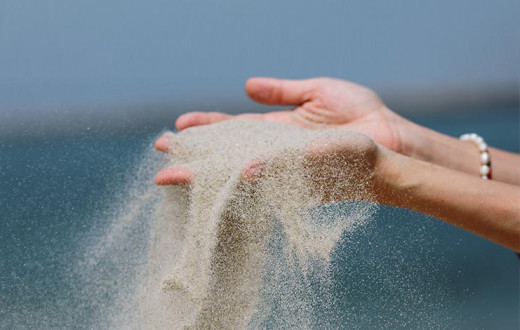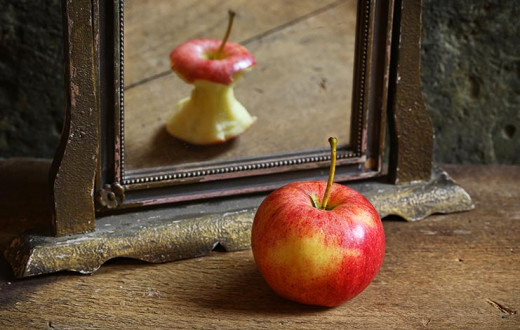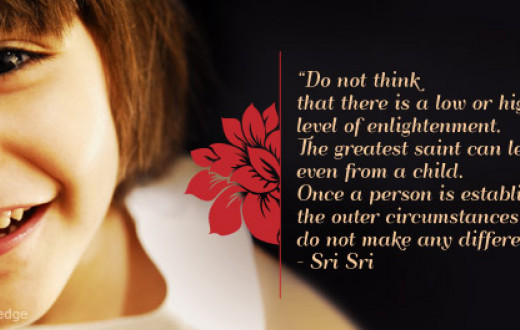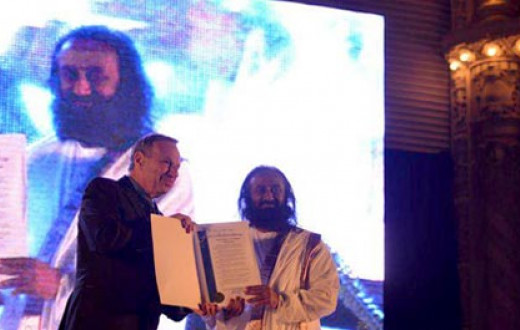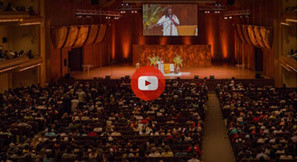7 Feb 2012
Gurudev, the season is changing once again. Can you please tell us the importance of ‘Ahar Vihar’, food and lifestyle to be maintained with every season. How does it impact us?
Sri Sri Ravi Shankar:
Ancient people have done a lot of research on that. Also the modern nutritionists have done quite a bit of research, and if you go and Google, you find a lot of things on what to eat in this season. Today all knowledge is available on the fingertips, correct!
According to Ayurveda there are Vata, Pitta, and Kapha seasons. Now when the summer comes, it is the Pitta that will go high, so you have to take things which calms the Pitta.
Nature is such that it produces only those things which are good for that season. Like in winter pumpkins and gooseberries grow. These are necessary for winter and in summer, they cut watermelons and sugarcanes and make sugarcane juice. This is the season of watermelon. Watermelon never comes in winter and they would not grow watermelon in winter. Watermelon comes up only in this season, now.
So the fruits, vegetables and everything, nature has done it in such a way to suit us according to the time and season. But now, we have gone so far away from nature and our body has also gotten adjusted to that. Otherwise when you are in a climate where bananas, papayas and mangoes grow, there apples do not grow. But now we eat apples also here. We bring apple from other regions. Where apples are grown, bananas don’t grow there in the same climate. Pears, apples, peaches, berries, strawberries and cherries, they all grow in one climate. Is it not?
But you will see people in those climates eat papaya and bananas, which don’t grow there.
That is the ideal thing, but you do not need to worry about it because now your body is used to apple, pineapple and everything, but in one meal see to that you take only those things together. Suppose you are taking bananas, papaya, chikoo and coconut, they all go together. They are tropical fruits. Then at another time you can eat apples, pears, cherries and as such.
According to Ayurveda there are Vata, Pitta, and Kapha seasons. Now when the summer comes, it is the Pitta that will go high, so you have to take things which calms the Pitta.
Nature is such that it produces only those things which are good for that season. Like in winter pumpkins and gooseberries grow. These are necessary for winter and in summer, they cut watermelons and sugarcanes and make sugarcane juice. This is the season of watermelon. Watermelon never comes in winter and they would not grow watermelon in winter. Watermelon comes up only in this season, now.
So the fruits, vegetables and everything, nature has done it in such a way to suit us according to the time and season. But now, we have gone so far away from nature and our body has also gotten adjusted to that. Otherwise when you are in a climate where bananas, papayas and mangoes grow, there apples do not grow. But now we eat apples also here. We bring apple from other regions. Where apples are grown, bananas don’t grow there in the same climate. Pears, apples, peaches, berries, strawberries and cherries, they all grow in one climate. Is it not?
But you will see people in those climates eat papaya and bananas, which don’t grow there.
That is the ideal thing, but you do not need to worry about it because now your body is used to apple, pineapple and everything, but in one meal see to that you take only those things together. Suppose you are taking bananas, papaya, chikoo and coconut, they all go together. They are tropical fruits. Then at another time you can eat apples, pears, cherries and as such.
Gurudev, what is the significance of ‘deep’ pooja on full moon day?
Sri Sri Ravi Shankar:
The ancient tradition is either full moon or new moon is a celebration, and in a celebration we light a lot of lamps. This is done even today. Whenever you see that there is a celebration, you put a lot of serial lamps and serial lights, is it not?
Also Christmas lights; they are even called Christmas lights because in Christmas season you like to light up the whole place. In Deepavali, lighting a lot of lamps creates an atmosphere of celebration.
That is what ‘deep’ pooja is.
Our life is like light, so lighting the light of wisdom within each one of us and lighting the light of love.
You will see here in India, the lamps have got five wicks and the five wicks symbolize the five senses. Let there be awareness and light in the five senses, that is the wish.
Our body is like a lamp and it has five senses and they should all be lit.
Also Christmas lights; they are even called Christmas lights because in Christmas season you like to light up the whole place. In Deepavali, lighting a lot of lamps creates an atmosphere of celebration.
That is what ‘deep’ pooja is.
Our life is like light, so lighting the light of wisdom within each one of us and lighting the light of love.
You will see here in India, the lamps have got five wicks and the five wicks symbolize the five senses. Let there be awareness and light in the five senses, that is the wish.
Our body is like a lamp and it has five senses and they should all be lit.
Dear Guruji, when things go great in one’s life, how to keep the simplicity and humility?
Sri Sri Ravi Shankar:
Trying to keep simplicity becomes a problem. Just be natural and that is it. And do seva.
’Sukh mein seva aur dukh mein tyag.’
If you tell a sad person to do seva, he would not do. When someone is sad or upset, if you ask them to do seva, they cannot. They are so immersed in their sorrow and they do not feel like doing anything. There they should just give up. When you are upset - give up and when you are happy - serve.
Keep this formula, it will be good!
’Sukh mein seva aur dukh mein tyag.’
If you tell a sad person to do seva, he would not do. When someone is sad or upset, if you ask them to do seva, they cannot. They are so immersed in their sorrow and they do not feel like doing anything. There they should just give up. When you are upset - give up and when you are happy - serve.
Keep this formula, it will be good!
Guruji there are many different sadhanas, many practices, poojas, asanas, meditations, chantings, and prayers. How do we know which one is the best and when?
Sri Sri Ravi Shankar:
Meditation is best.
Everything has its significance. Everything has its own value, but in meditation you become so quiet, you become so deep. That uplifts you and brings value to chanting, to pooja, and to everything. Service and everything becomes more meaningful if you have meditation in life.
Everything has its significance. Everything has its own value, but in meditation you become so quiet, you become so deep. That uplifts you and brings value to chanting, to pooja, and to everything. Service and everything becomes more meaningful if you have meditation in life.
Gurudev, often I have observed that God gives me all worldly things without fail, but in case of self-realization, why is it that I am being ignored and denied by the almighty? Why the wait?
Sri Sri Ravi Shankar:
No, you are never denied that. Almighty never denies you self-realization.
Keep doing your sadhana, keep doing seva. And in advance course you understand, when you sit in silence and when you say ’I am’ in the ‘I am’ meditation, you see everything is a dream.
Everything is changing but something in me is not changing. That is it!
Do not imagine that your self-realization is one day some atma is going to come in front of you and say, ’hey! I am here!’ That is not going to happen.
The soul is not a subject of knowledge or a subject of knowing. It is the knower.
Keep doing your sadhana, keep doing seva. And in advance course you understand, when you sit in silence and when you say ’I am’ in the ‘I am’ meditation, you see everything is a dream.
Everything is changing but something in me is not changing. That is it!
Do not imagine that your self-realization is one day some atma is going to come in front of you and say, ’hey! I am here!’ That is not going to happen.
The soul is not a subject of knowledge or a subject of knowing. It is the knower.
Why do we need to choose a life partner Guruji? Life would be much simpler if we loved everyone or no one.
Sri Sri Ravi Shankar:
Now, tell me what is your trouble? Do you have a partner or not? Then I will tell you. Or someone whom you are seeing, your girlfriend is asking you to choose and marry?! I know what is happening! You cannot ask me indirect questions and use it. (Laughter)
Gurudev, there is a new problem in my life because of Facebook and Internet. My wife gets upset when she sees female friends on my friend list, but when my wife makes male friends on the net, she does it without any hesitation. How to tackle this?
Sri Sri Ravi Shankar:
Well, you know I have no experience to handle these situations. You must ask your friends only, they may give some ideas. Or why not ask your own wife? Ask her how to solve this.
You know, there is a proverb, ‘give the keys to the thief and make the thief the guard.’
So where there is a problem try to find a solution there. Ask her to give you a solution. Let us see!
You know, there is a proverb, ‘give the keys to the thief and make the thief the guard.’
So where there is a problem try to find a solution there. Ask her to give you a solution. Let us see!
Gurudev, sometimes you tell us to keep one wish when we sit for mass meditation and it will get fulfilled. Kindly tell me whether it is applicable for viewers of the webcast also.
Sri Sri Ravi Shankar:
Yes, when you meditate, it is possible. Why not try? I cannot guarantee, but you should try.
What really are spiritual guides? Do they really exist? Sometimes I feel the presence of something uncanny around me. What should I do? Is it normal?
Sri Sri Ravi Shankar:
No, just do not worry. Do not go into that arena.
What you have here now is a higher field than that. Otherwise if you go into the field of spirits, it is a lower field. What we are doing here, the Vedanta, the meditation and knowledge is much higher.
If you feel such a presence, just fold your hands and greet it and that is it.
People may say, ‘Oh, that guide is coming and talking to me’, or ‘This guide says this’.
It is there but it is another world, we do not need to get into it. It is not necessary. It can lead into a lot of complications or what we call yogmaya.
What you have here now is a higher field than that. Otherwise if you go into the field of spirits, it is a lower field. What we are doing here, the Vedanta, the meditation and knowledge is much higher.
If you feel such a presence, just fold your hands and greet it and that is it.
People may say, ‘Oh, that guide is coming and talking to me’, or ‘This guide says this’.
It is there but it is another world, we do not need to get into it. It is not necessary. It can lead into a lot of complications or what we call yogmaya.
Gurudev, what is Hatha yoga. Is it different from normal yoga? What is specific to this tradition of yoga?
Sri Sri Ravi Shankar:
No, Hatha yoga is one in which force or effort is used, like asanas, different kinds of difficult postures – these are all part of Hatha yoga.
A little bit of Hatha yoga is there wherever asanas are done, it is part of hatha yoga, but you don’t need to go very deep into it. If you want to go deep into it, it has to be started in childhood. It will take many years to master it.
You can stop a moving truck or a moving vehicle with Hatha Yoga. You can master pranayama and break a metal rod into two with your hands – many people have done this. They are able to break iron rods with their hands.
Doing a little bit of Hatha yoga keeps the body healthy and strong. So, it is good for that.
A little bit of Hatha yoga is there wherever asanas are done, it is part of hatha yoga, but you don’t need to go very deep into it. If you want to go deep into it, it has to be started in childhood. It will take many years to master it.
You can stop a moving truck or a moving vehicle with Hatha Yoga. You can master pranayama and break a metal rod into two with your hands – many people have done this. They are able to break iron rods with their hands.
Doing a little bit of Hatha yoga keeps the body healthy and strong. So, it is good for that.
Gurudev, what is Maharasa? Does Sri Hari (Lord Krishna) perform Maharasa even today?
Sri Sri Ravi Shankar:
Maharasa is this only, satsang! Where there is juice, where one gets so intoxicated and experiences so much love and joy, that everywhere only God is visible – that is Maharasa.
Where nothing besides God exists; if such a feeling arises in you that you forgot everything else, then know that Maharasa or meditation has happened. At that time there is no worry in the mind – worry about this or that. When all worldly matters are completely forgotten then that is Maharasa.
If you get even a glimpse of it sometimes for a short period of time, that is enough. Life begins to go very smoothly and very beautifully.
Where nothing besides God exists; if such a feeling arises in you that you forgot everything else, then know that Maharasa or meditation has happened. At that time there is no worry in the mind – worry about this or that. When all worldly matters are completely forgotten then that is Maharasa.
If you get even a glimpse of it sometimes for a short period of time, that is enough. Life begins to go very smoothly and very beautifully.
Gurudev, what is the significance of sindoor (vermillion)? I would like to know why is sindoor a symbol of marriage (suhaag)? It is often seen that women do not apply sindoor even after marriage. Why is that?
Sri Sri Ravi Shankar:
Yes! Where sindoor is applied is where the pituitary glands are located (Guruji says pointing to the center of his forehead); pineal or pituitary glands.
There are seven chakras or seven energy centers in our body. So, where the pituitary glands are located, when you apply sindoor, particularly the one with turmeric, on top of sandalwood – then the vibrations of it stimulate the whole body and the mind remains calm and centered. Especially women who are very emotional, it is said that by applying sindoor on the forehead, their mind remains calm.
And the second thing is, it is part of dressing up, it looks beautiful.
In this world, in all the ancient civilizations, whether you look at the tribal people of Australia, or the tribal people of Canada, or the ancient people of Africa, they all put something on their forehead. They all have some tradition of applying some kind of bindi on their foreheads. But in the Indian civilization this tradition has existed since ancient times. Even when someone comes, we apply tilak (dot of sindoor on the forehead), to indicate that the person is civilized, educated and cultured, and whose mind is calm and mature. It became a symbol of all of this.
The meaning of Haldi (turmeric) is that, without haldi, nothing can move forward for us. Anything good and auspicious happens, we have to use turmeric.
It is said that there is no other antioxidant like turmeric. It is a very good antioxidant. It stops many diseases from developing.
And another thing that a scientist told me – there are these very tiny mites on our forehead. Three kinds of mites are there – one near the eye brow, one in the middle of the forehead, and one in the upper part of the forehead, and each type has their fixed territory. The ones on the lower forehead will not go to the middle or the ones from the upper forehead region will not come down to the middle or lower part of forehead. So these small mites or bugs live on our bodies.
So men apply bhasma (ashes) on their forehead, and women apply haldi kumkum on top of sandalwood. By applying that, the point of the pituitary gland is also protected. This is the belief. It is applied on the Agya Chakra and has an effect on it.
Anyway, whatever it is, it is a symbol of the culture. Take it as this, and apply it.
Once when I had gone to Rajasthan, I met some women there who make bindis. It is their livelihood. Those women were telling me that since the past five to six years, their income had become one fourth of what it used to be. They make those small plastic ones (bindi).
So they were all very unhappy, all of those women, saying that, ‘See, before we used to be able to sell so much, but now we are not able to sell. Nobody applies them anymore.’
So I said, ‘No, no, I will tell everyone.’
I promised those women that I will tell all the women that they should apply (bindi), so that their means of living continues. So since then I tell everyone who comes to me; I keep asking them to apply the bindi. What I had promised to them, that I will not allow their business to die; so I advise all women to buy and apply (bindi). Since then I keep telling everyone.
There are seven chakras or seven energy centers in our body. So, where the pituitary glands are located, when you apply sindoor, particularly the one with turmeric, on top of sandalwood – then the vibrations of it stimulate the whole body and the mind remains calm and centered. Especially women who are very emotional, it is said that by applying sindoor on the forehead, their mind remains calm.
And the second thing is, it is part of dressing up, it looks beautiful.
In this world, in all the ancient civilizations, whether you look at the tribal people of Australia, or the tribal people of Canada, or the ancient people of Africa, they all put something on their forehead. They all have some tradition of applying some kind of bindi on their foreheads. But in the Indian civilization this tradition has existed since ancient times. Even when someone comes, we apply tilak (dot of sindoor on the forehead), to indicate that the person is civilized, educated and cultured, and whose mind is calm and mature. It became a symbol of all of this.
The meaning of Haldi (turmeric) is that, without haldi, nothing can move forward for us. Anything good and auspicious happens, we have to use turmeric.
It is said that there is no other antioxidant like turmeric. It is a very good antioxidant. It stops many diseases from developing.
And another thing that a scientist told me – there are these very tiny mites on our forehead. Three kinds of mites are there – one near the eye brow, one in the middle of the forehead, and one in the upper part of the forehead, and each type has their fixed territory. The ones on the lower forehead will not go to the middle or the ones from the upper forehead region will not come down to the middle or lower part of forehead. So these small mites or bugs live on our bodies.
So men apply bhasma (ashes) on their forehead, and women apply haldi kumkum on top of sandalwood. By applying that, the point of the pituitary gland is also protected. This is the belief. It is applied on the Agya Chakra and has an effect on it.
Anyway, whatever it is, it is a symbol of the culture. Take it as this, and apply it.
Once when I had gone to Rajasthan, I met some women there who make bindis. It is their livelihood. Those women were telling me that since the past five to six years, their income had become one fourth of what it used to be. They make those small plastic ones (bindi).
So they were all very unhappy, all of those women, saying that, ‘See, before we used to be able to sell so much, but now we are not able to sell. Nobody applies them anymore.’
So I said, ‘No, no, I will tell everyone.’
I promised those women that I will tell all the women that they should apply (bindi), so that their means of living continues. So since then I tell everyone who comes to me; I keep asking them to apply the bindi. What I had promised to them, that I will not allow their business to die; so I advise all women to buy and apply (bindi). Since then I keep telling everyone.
Gurudev, you embrace terrorists and Naxalites, and you don’t even look in my direction. Sometimes out of love for you, the thought arises that I should become someone like them.
Sri Sri Ravi Shankar:
You are so close to me, how do I look at you? One who is far away only comes in the line of sight; is visible. How to look at one who is already standing so close to me?
I am in your heart, and you are in my heart, so where is the need to hug?
I am in your heart, and you are in my heart, so where is the need to hug?











